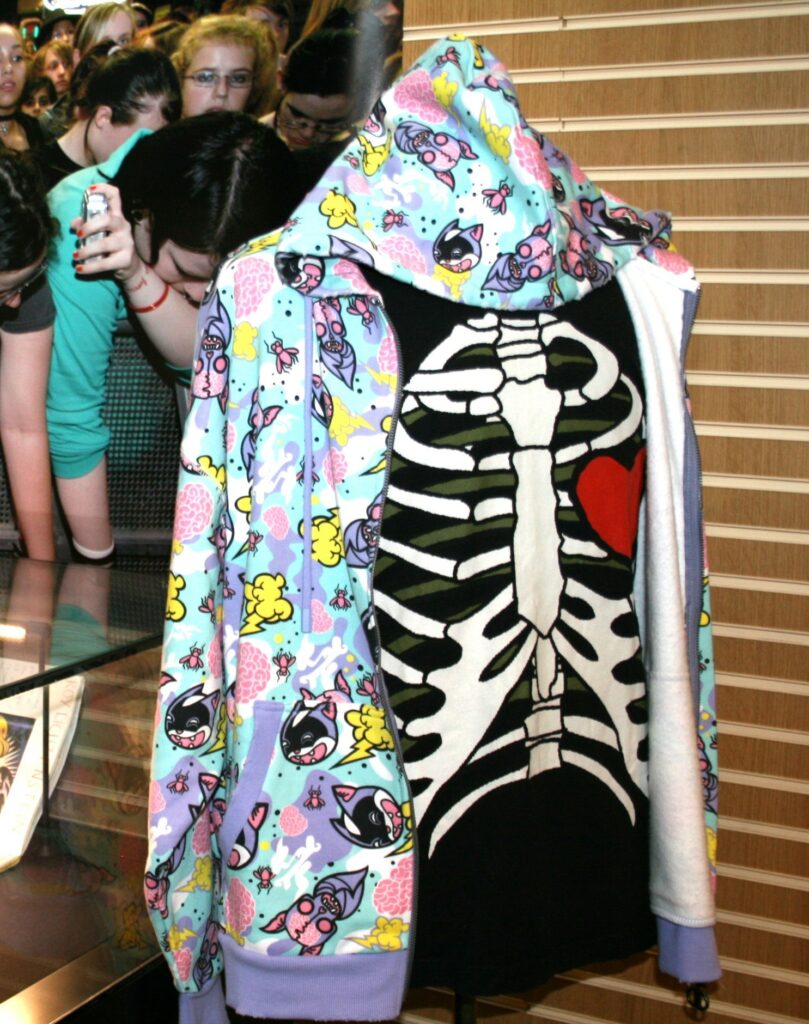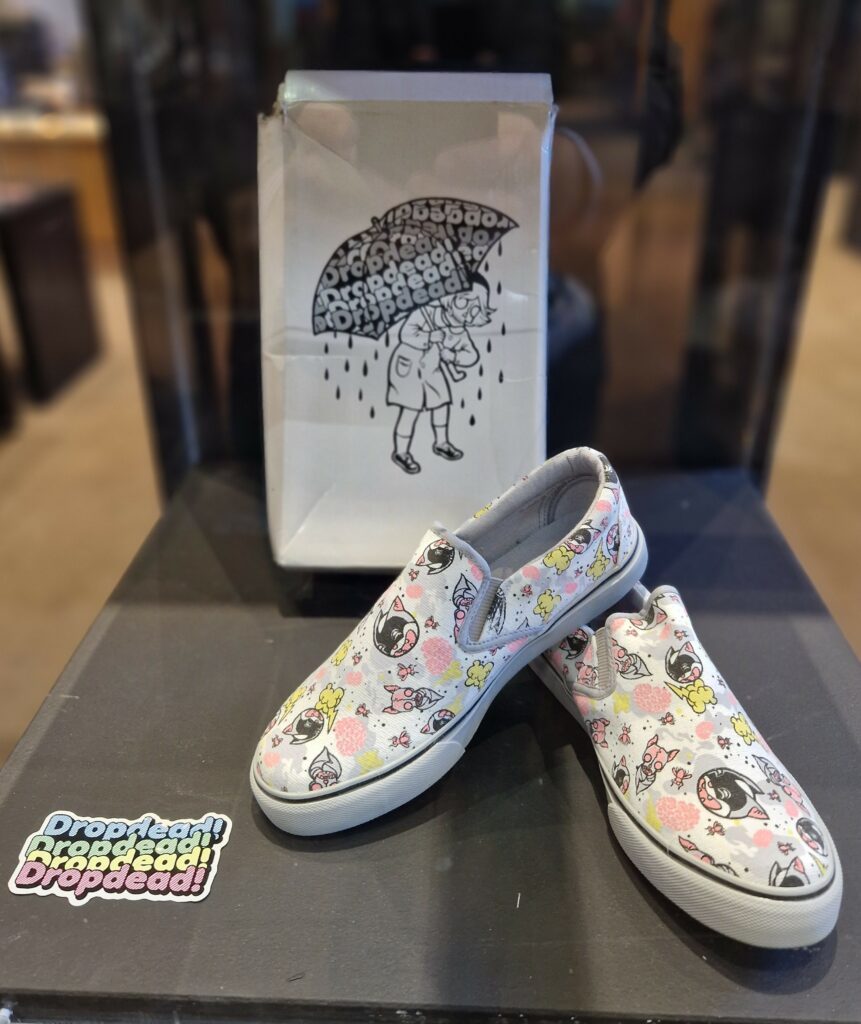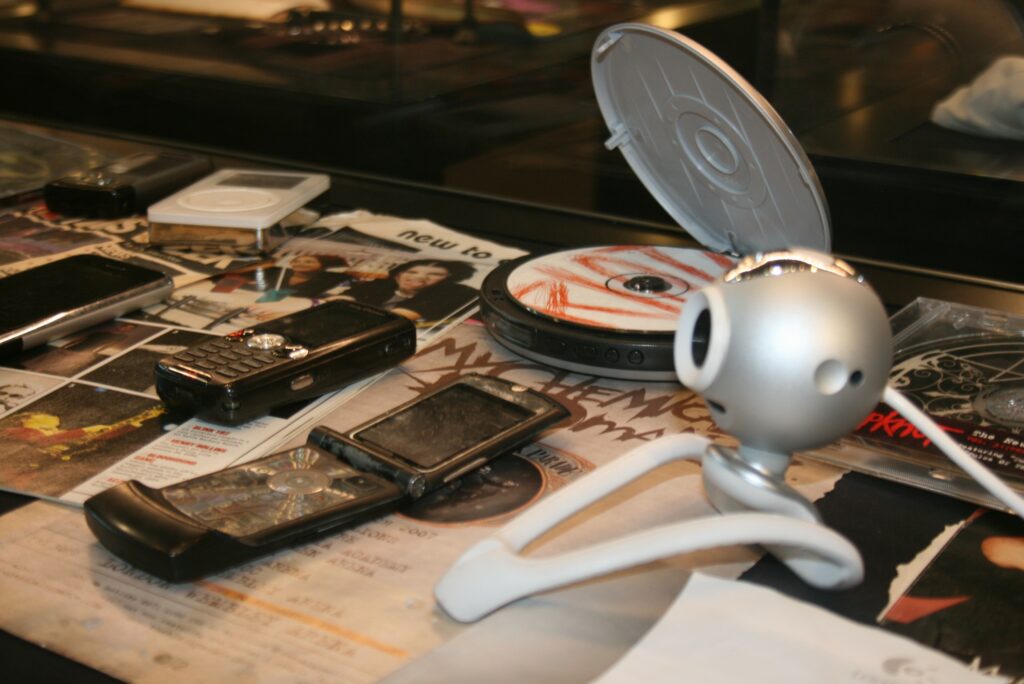The following is a guest post from Richard L. Jones, Music Librarian, Barbican Music Library:
I’m Not Okay: An Emo Retrospective is the title of Barbican Music Library’s latest exhibition, the result of a collaboration with the Museum of Youth Culture. With roots in the hardcore-punk scene in 1980s Washington D.C., emo (short for ‘emotional’ or ‘emotional hardcore’) developed a large following during the succeeding decade with its raw, angst-ridden music and confessional lyrics. As the first subculture to embrace the internet, it found a receptive audience in a generation of teenagers who used MySpace, Bebo and LiveJournal to express their feelings of insecurity, isolation and angst, as well as a sense of disenfranchisement.
The exhibition focuses on the years 2004-2009, a period which forms part of the genre’s ‘third wave’, when the influence of American bands such as My Chemical Romance, Fall Out Boy, and Finch helped to inspire the creation of a UK scene led by acts such as Funeral for a Friend. It features personal photos snapped on early digital and mid-00s phone cameras which have been digitally unearthed by the Museum of Youth Culture from old hard drives and Photobucket accounts. The museum issued a callout to emos across the globe, many of whom contributed photos, personal memories and diary entries, and a special ‘Memory Wall’ enables fans to share them with exhibition visitors. Submissions are still welcomed via the following address: www.museumofyouthculture.com/submit

As well as music, the emo subculture developed its own distinctive fashion style which included skinny jeans, studded belts, tight t-shirts, and footwear produced by Converse and Vans. Eyeliner was popular with all genders, and a long fringe swept to one side covering much of the face was a classic look. Drop Dead Clothing – which was established in 2004 by Bring Me the Horizon frontman, Oli Sykes – kindly loaned a selection of garments and footwear from the era.


The display also contains concert tickets, magazine articles, vinyl and CDs, as well as examples of mobile phones from the mid-2000s which, with their rudimentary cameras, empowered a generation of teenagers.

One of the cabinets features examples of DIY art, an important part of emo culture, with online social networks such as DeviantArt providing a platform for drawings, collages etc. to be shared within the community. The creativity of visitors to the exhibition is reflected in the Music Library’s Comments Book:

Jamie Brett (Creative Director, Museum of Youth Culture) said: “The emo scene resonated deeply with teens who wanted to express their angst, doubts, insecurity, and sense of feeling and being different, and channelled their collective melancholy into a transatlantic subculture … As well as the content that we unearthed digitally, we are very grateful to everyone who remembered how emo culture helped shape their lives and answered our shout-outs for visual material for the exhibition, essentially, giving them a degree of ownership of it.”
The exhibition also explores the role that emo culture played in promoting tolerance and acceptance in society, and how it addressed issues such as sexuality, gender, mental health and identity. A lively and well-attended event with a DJ was held in the library to officially launch the exhibition.

The Museum of Youth Culture is an emerging museum dedicated to the styles, sounds and social movements innovated by young people over the last 100 years. Championing the impact of youth on modern society, its collection incorporates photographs, ephemera, objects and oral histories celebrating our shared youth culture history. I would like to express my sincerest thanks to its staff for curating this exhibition, and to Charlotte Jones (Assistant Librarian, Music Library) who organised it with the assistance of the Barbican Music Library team. The exhibition runs until 15 January 2025.
Richard L. Jones
(Music Librarian, Barbican Music Library)
